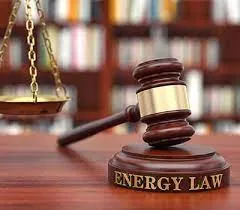Energy Law
Energy Law governs the production, distribution, and regulation of energy resources, including electricity, renewable energy, petroleum, natural gas, and mining. It ensures compliance with legal standards, promotes sustainable development, and protects the rights of companies, consumers, and stakeholders.
1. What is Energy Law?
Energy Law covers legal rules and regulations related to:
-
Electricity generation and distribution
-
Renewable energy projects
-
Oil, gas, and petroleum regulation
-
Energy efficiency and sustainability standards
-
Environmental compliance in the energy sector
In India, Energy Law is governed by:
-
Electricity Act, 2003
-
Energy Conservation Act, 2001
-
Petroleum and Natural Gas Regulatory Board (PNGRB) Act, 2006
-
Coal Mines (Special Provisions) Act, 2015
-
Regulations from the Ministry of Power, MNRE, and SEBI
2. Key Areas of Energy Law
2.1 Electricity and Power Law
-
Generation, transmission, and distribution of electricity
-
Licensing requirements for power companies
-
Tariff regulation and dispute resolution under Electricity Regulatory Commissions
2.2 Renewable Energy Law
-
Solar, wind, biomass, and hydropower projects
-
Legal compliance for renewable energy certificates (RECs)
-
Government incentives, subsidies, and policy guidance
2.3 Oil, Gas, and Petroleum Regulation
-
Licensing and exploration rights under PNGRB
-
Import, export, and trading regulations for petroleum products
-
Health, safety, and environmental compliance
2.4 Energy Efficiency and Conservation
-
Legal requirements under the Energy Conservation Act, 2001
-
Promotion of energy-efficient buildings, appliances, and industrial systems
-
Penalties for non-compliance
2.5 Environmental and Safety Regulations
-
Environmental Impact Assessments (EIA) for energy projects
-
Compliance with Pollution Control Laws and Forest Conservation Act
-
Worker safety and industrial standards
3. Dispute Resolution in Energy Law
-
Arbitration for power purchase agreements (PPAs) and contracts
-
Regulatory disputes with electricity boards or energy regulators
-
Litigation related to environmental compliance or licensing violations
-
Government approvals and policy interpretation disputes
4. Why Hire an Energy Lawyer?
An energy lawyer can help businesses and individuals:
-
Ensure regulatory compliance for energy projects
-
Draft and review contracts, PPAs, and licensing agreements
-
Handle disputes with regulators, contractors, or stakeholders
-
Advise on renewable energy policies, subsidies, and incentives
-
Represent clients in arbitration, court, or tribunal proceedings
5. Real-Life Example
Case: A solar energy company faced regulatory challenges while obtaining licenses for a 50 MW project.
Resolution: With legal assistance, the company navigated state electricity board regulations, environmental clearances, and licensing requirements, completing the project successfully and qualifying for government incentives.
6. Conclusion
Energy Law is critical for ensuring sustainable development, regulatory compliance, and legal protection in the energy sector. Whether it’s electricity, renewable energy, oil, gas, or environmental compliance,






